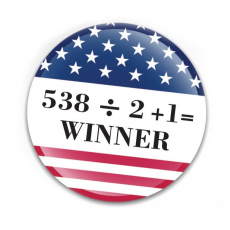
Email: reecejordan98@hotmail.co.uk
Total Article : 168
About Me:18-year-old sixth form student, studying English Literature, History and Government and Politics. My articles will broadly cover topics from the current affairs of politics to reviews of books and albums, as well as adding my own creative pieces, whether it be short fiction or general opinion.

This is emblematic of the undemocratic nature of the Electoral College system, to which the American population angrily responded. In the immediacy of the election result, there were many protests throughout America with the slogan ‘[Trump] not my president!’. This is because the Electoral College system produced a president who not only didn’t achieve a mandate of over 50% of the popular vote, but also because his opponent had a greater percentage of the popular vote than he did. A proportional system, therefore, would reflect the will of the American people. As a result, we may presume that the people would more willingly accept the result as it reflects the will of the electorate and give the winner a greater mandate. A proportional system would also assist third party candidates in that the electorate will feel that their vote is not wasted. However, though this can be seen as aiding democracy in that there would exist greater legitimate choice of candidate, such a system would also pose an issue to creating a president who is a symbol of national unity. Since more America could be inclined to vote for a third party candidate, the likelihood of a candidate achieving over 50% of the popular vote would significantly decrease, thus lessening his or her mandate. Therefore we can see that whilst the proposal of a proportional system would reflect more the will of the people and would therefore be a more democratic system, the product of such a system would most likely be a president who would have won less than 50% of the popular vote, thus disrupting national unity rather than aiding it.
We can see that whilst there may be some positives to the Electoral College system e.g. the fact that allows small states a significant voice that would otherwise be unheard and the fact that it usually creates a president who is a symbol of national unity, the question still looms over whether it is still a legitimately democratic and modern system. The arguments against the system outweigh those that uphold it: the populaces of smaller states’ votes are granted an unfair weight against those who live in more densely populated areas, and the ‘winner-takes-all’ convention creates a climate wherein the result is distorted, with many candidates actually losing the election whilst securing the popular vote. Thus, there is a greater argument for the abolition of the Electoral College system than for its preservation, but the question of what to replace it with still hangs in the balance. A system run on proportional means would be much more democratic but the products it produces would be seen to descend America into even greater division and would thus affect the unity of the country that is much needed after a bipartisan election.
Image Credits: parade.com

0 Comment:
Be the first one to comment on this article.